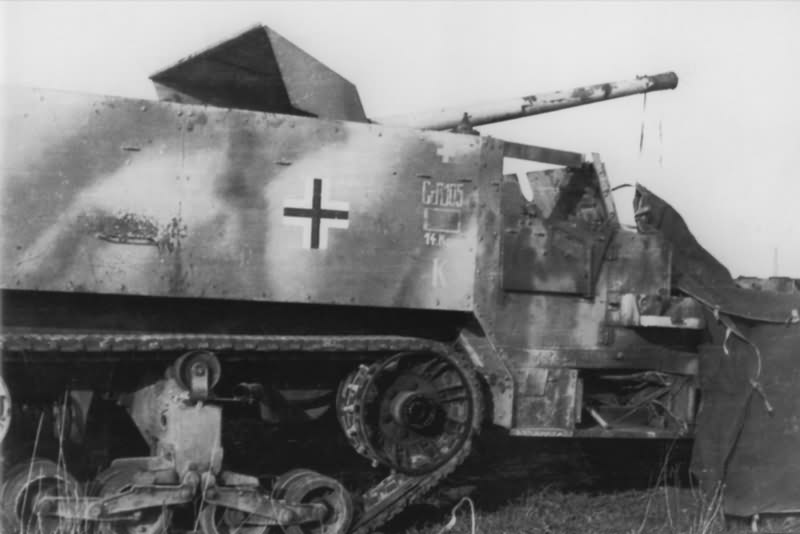The T48 57mm Gun Motor Carriage (GMC) was initially developed at the request of the British Army in April 1942, with the idea of mounting the 6-pounder anti-tank gun on an M3 half-track chassis. However, by the time the T48 entered production in December 1942, the British Army had concluded that the 6-pounder was no longer effective for the anti-tank role, so they no longer had a strong need for it.
Soviet Use as SU-57
With the British declining most of the T48s, the majority were offered to the Red Army, which took 650 of the 962 produced. These vehicles were re-designated in Soviet service as the SU-57, reflecting their 57mm main armament. The SU-57 became an important vehicle in Soviet service, even though it was developed by US Army Ordnance for British use. In fact, it was the only British or American armored fighting vehicle to be used exclusively by the Red Army in combat.
Soviet Deployment
The SU-57 was used in specially organized independent tank destroyer brigades. Each brigade was composed of three battalions, with a total of 60 SU-57s per brigade. These brigades were used in various key battles during the war:
- The 16th Separate Tank Destroyer Brigade was the first to see action, fighting in the Dnepr River offensive in Ukraine in August 1943.
- The 19th Brigade fought in the Baranow bridgehead battles in Poland in August 1944.
- Some of these brigades took part in the Berlin campaign and the Prague campaign in April–May 1945.
In addition to the tank destroyer brigades, the SU-57 was used in separate motorcycle battalions, where its firepower was especially welcome for reconnaissance operations.
Polish Use
The Soviets later transferred 15 SU-57s to the Polish People’s Army, where they were employed by the 7th Self-Propelled Artillery Battery during fighting in both Poland and Germany in 1944–45.
Conclusion
Though originally designed for the British, the T48/SU-57 found its true place on the Eastern Front, where it became an important part of Soviet tank destroyer units and reconnaissance formations. Its combat role continued through some of the most significant campaigns of the final years of World War II.
